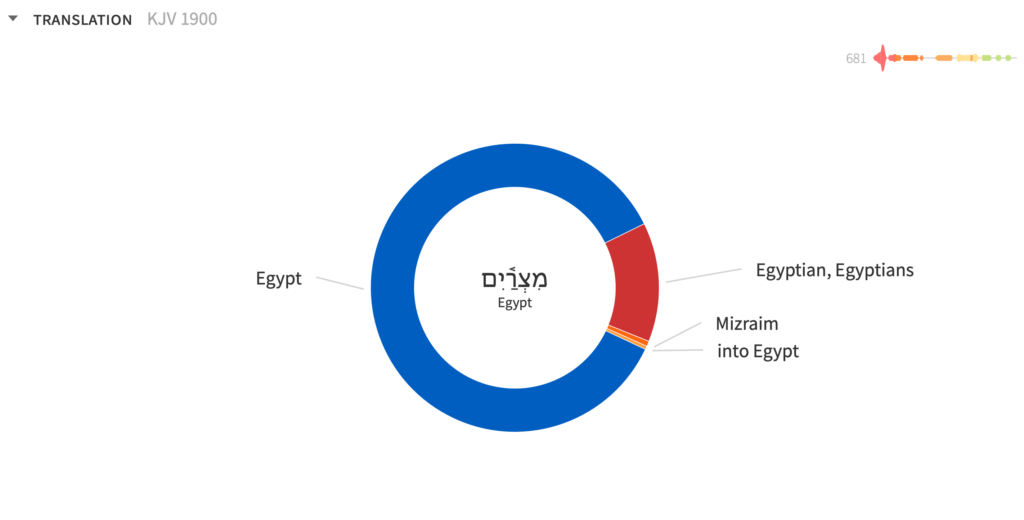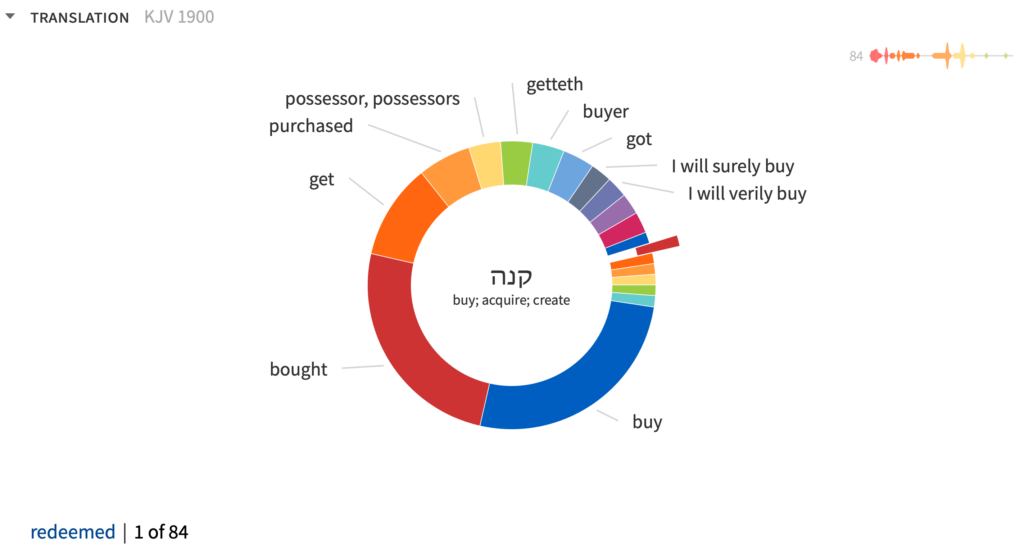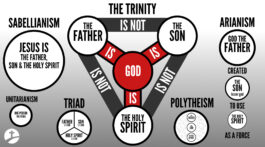Notice all the love I have been getting from the Sacarii group since I debated one of their deacons-


Truly, these cultic groups are showing their evil fruit, but I bless those who curse me and forgive them for they know not what they do. Sadly, most Hebrew Israelites are not aware of their deception. Please pray for their eyes to be opened to the true gospel.
Matthew 5:11-12, “11 Blessed are you when people insult you, persecute you and falsely say all kinds of evil against you because of me. 12 Rejoice and be glad, because great is your reward in heaven, for in the same way they persecuted the prophets who were before you.”
DEUTERONOMY 28:68
And the LORD shall bring thee into Egypt again with ships, by the way whereof I spake unto thee, Thou shalt see it no more again: and there ye shall be sold unto your enemies for bondmen and bondwomen, and no man shall buy you.
ANSWERING THREE MAJOR OBJECTIONS
- Egypt is Figurative For “Place of Fortress”
First, their usual way around accepting Egypt as the literal place the Jews once lived is by appealing to the root word of Egypt, masor, (which means besieged/fortress) and claim that the Israelites will be sent back to a place that is a fortress.
However, notice below that the actual word in Deut. 28:68 is misrayim and never is translated in the KJV as besieged/fortress. Thus, it must be taken literal because the usage determines the meaning of a word, not it’s root.

Likewise, in verse 60 of the same chapter the exact Hebrew word is used and it clearly means the literal place they once lived, “Moreover he will bring upon thee all the diseases of Egypt [misrayim].” As a result, if Egypt is literal in verse 60, it should remain literal in verse 68.
Second, if they are going to take ships are literal they should take Egypt as literal too. Otherwise, if they want to play the “figurative game,” ships could mean “trains” (or any other kind of transportation) and Egypt could mean “Germany” (or any other place of suffering). If that is how one interprets the verse then anytime the real Jews were taken somewhere and suffered, like during the Holocaust, it is valid as well.
2. The Israelites Cannot Go Back Where God Promised They’d Never Go Back To
First, this objection fails to understand the actual wording of the sentence. Notice the following words, “by the way whereof I spake unto thee, Thou shalt see it no more again,” — thus, which way did God literally say they wouldn’t go back to? The very place of literal Egypt, see Deuteronomy 17:16, “But he shall not multiply horses to himself, nor cause the people to return to Egypt, to the end that he should multiply horses: forasmuch as the LORD hath said unto you, Ye shall henceforth return no more that way.”
Second, do God’s promises remain for those who rebel against Him? Certainly not! Notice further in Deuteronomy that God said in one chapter that He will never forsake His people but later in the same chapter He stated He will- if they turn away from Him. This does not mean that God’s overall plan will not come to pass, but certain people at certain times can receive His judgement instead of His promise.
- Deuteronomy 31:6, “Be strong and of a good courage, fear not, nor be afraid of them: for the LORD thy God, he it is that doth go with thee; he will not fail thee, nor forsake thee.”
- Deuteronomy 31:17, “Then my anger shall be kindled against them in that day, and I will forsake them, and I will hide my face from them, and they shall be devoured, and many evils and troubles shall befall them; so that they will say in that day, Are not these evils come upon us, because our God is not among us?”
Third, the entire point is that He will be so angry with them that they will go to a place He never wanted them to go. Consider the following Jewish commentary on the passage:
“Forced return to Egypt, where the former taskmasters now spurn Israel’s desperate bid to sell itself back into slavery and thus to undo its own history. For selling oneself into slavery under financial hardship to pay off debts or gain support (“indenture”), see Lev. 25:39. Route which I told you you should not see again (cf. 17:16): Although the reference to the “route” or “direction” is unclear, the threat reverses the unconditional promise by Moses at the time of the exodus: “the Egyptians whom you see today you will never see again” (Exod. 14:13). The covenant violations by Israel are so serious that Moses threatens to abrogate that promise.”
(Berlin, A., Brettler, M. Z., & Fishbane, M. (Eds.). (2004). The Jewish Study Bible (p. 432). New York: Oxford University Press.)
3. The Hebrew Word for Buy Can Mean Redeem, Like a Kinsmen Redeemer
First, notice that in the KJV that the Hebrew word is only translated as “redeem” one time, but it is the context that made it be so, see Nehemiah 5:8, “And I said unto them, We after our ability have redeemed our brethren the Jews, which were sold unto the heathen; and will ye even sell your brethren? or shall they be sold unto us? Then held they their peace, and found nothing to answer.”

Notice in Nehemiah that they needed, “ability” to be able to redeem (or buy back) their brothers. However, in the context of Deut. 28 it is clear no one will have the ability to buy anyone back because the nation as a whole will be destroyed (v. 23).
Second, for extra proof consider the Targum of Jonathan, which is an Aramaic translation of Deut 28:68 from around the time of Jesus to see how the Jews understood the text:
”And the Word of the Lord will bring you captive to Mizraim in ships through the Sea of Suph, by the way you passed over, of which I said to you, No more shall you see it. And there will you be sold to your enemies, at the beginning for a dear price, as artificers, and afterward at a cheap price, as servants and handmaids, until you be worthless and (be consigned) to unpriced labour, and there be none who will take you.”
THE REAL ISRAELITES DID HAVE THIS FULFILLED IN 70 A.D.
The actual Jews did have the curse of Deut. 28:68 brought upon them in the time of 70 A.D. when the Temple was destroyed and they were taken as prisoners out of Israel and shipped to Egypt by the Romans and begged to be taken as slaves because they were suffering so much.
See the following three historical accounts:
(i) Munter, Primordia Eccl. Africanae, pp. 85f., 113
“Now that Betar had been captured, everything came under human control, while ‘Palestine’ [Judah] was reduced to a desolate mound. Captives were sold into slavery in numbers too great to count. First they were brought to the grand annual market at the Terebrinth-Eloh tree in Hebron, or in the words of Hydranumous, to the Tent-Ohel of Abraham near Hebron. Each slave sold for the price of a horse. Those captives who were not sold were brought to the marketplace in Azza [Gaza] which, because of the great multitudes of slaves, who were sold there, was called Hadrian’s marketplace. And those who were still not sold there were herded into ships and were taken to Egypt. Many died in transit, whether by starvation or by shipwreck, while many were also killed by cruel masters.”
(ii) Emil Schurer, “A History of the Jewish People in the Time of Jesus Christ”, Edinburgh, 1896, p. 11
“Innumerable was the multitude of those who were sold away as slaves. At the Annual Market of Terebrinth of Hebron they were offered for sale in such numbers that a Jewish slaves was of no more value than a horse. What could not be disposed of there was brought to Gaza and sold or sent to Egypt, on the way to which many died of hunger, or of shipwreck.”
(iii) Josephus, “The Jewish Wars”, Book VI 9:2.
“Because the soldiers were now growing weary of bloodshed, and survivors appeared constantly, Caesar orders to kill only those who offered armed resistance and to take alive all the rest (415). The troops, in addition to those covered by their orders, slaughtered the aged and infirm; people to their prime who might be useful they hearded into the temple area and shut in the court of the women (Iccl. (416). Casear appointed one of his freedmen as their guard, his friend Fronto, to decide the fate appropriate to each (417). All those who had taken part in sedition and brigandage (they informed against [each] other) where executed. He picked out the tallest and handsomest of the lot and reserved them for the Triumph (418). Of the rest, those who were over seventeen he put in chains and sent to hard labor in Egypt while great numbers were presented to Titus to provinces to perish in the theatres by sword or wild beasts; those under seventeen were sold.”




